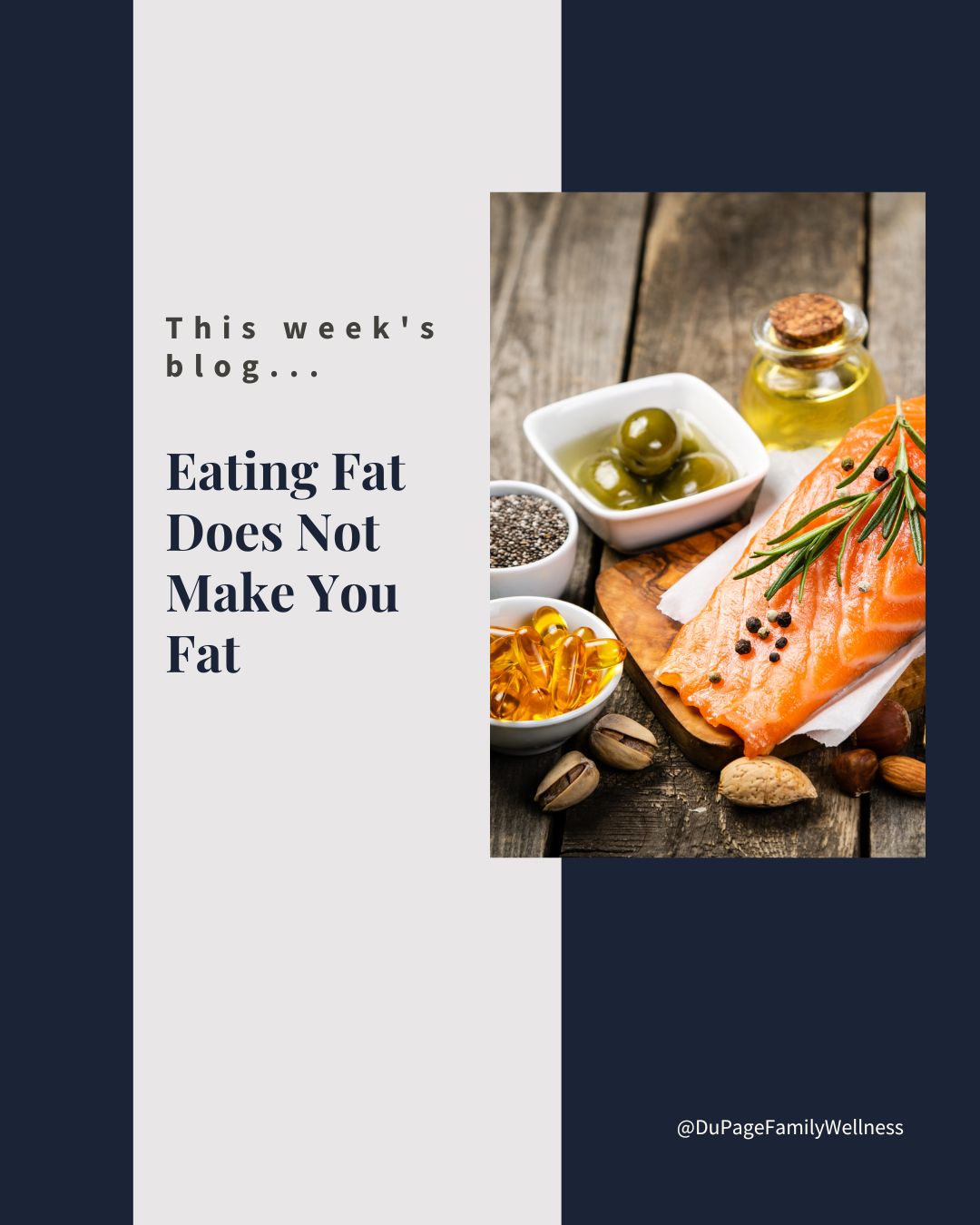
Many of us were taught that eating fat would make us gain weight. We were never told that we need good fats in our diet to be healthy. Healthy fats help us feel full, stabilize blood sugar, maintain energy, and are essential in the body's production of hormones.
Since your body cannot make several of the necessary essential fatty acids, they must come from your diet. Without these nutrients, you may struggle with inflammation, fatigue, poor memory function, heart issues, depression, dry skin, and many other unpleasant symptoms.
Let's consider if you are eating enough of the RIGHT types of fats.
Healthy Fats vs. Unhealthy Fats
Eating enough fat is incredibly important, but eating the RIGHT kinds is the key! There is a big difference between good, natural, unprocessed, unrefined sources of fat and highly processed, refined fats.
Healthy fats should be incorporated into your diet every day. On the other hand, processed and refined fats are considered “junk calories.” These unhealthy fats can be oxidized or rancid. They are unrecognizable to our bodies and contribute to a host of health problems.
Good Healthy Fats
These foods contain GOOD Fats. Enjoy eating these frequently without guilt!
- Avocados
- Olives
- Ghee
- Butter (I especially love Kerrygold)
- Plain Yogurt (Full fat)
- Avocado Oil
- Coconut Oil
- Olive Oil
- Nuts
- Fish (salmon, herring, anchovies, and sardines)
- Grass Fed Beef
- Dark Meat (from free-range poultry)
- Animal Fat (lard, beef tallow, duck fat, etc.)
- Eggs (especially from pastured chickens)
*It is important that any animal product comes from healthy animals that got to eat their natural diets while they were alive.
Not-So-Healthy Fats
Reading labels will be important when trying to limit or eliminate unhealthy fats. They hide in processed foods such as chips, crackers, and baked goods. Look for oils such as...
- Safflower oil
- Sunflower oil
- Soybean oil
- Canola oil
- Corn oil
- Vegetable oil
- Margarine
- Crisco
- Peanut oil
- Wheatgerm oil
- Cottonseed oil
- Grapeseed oil
- Rice Bran oil
- Anything hydrogenated, or partially hydrogenated
Some prepackaged items also contain trans fatty acids. When people eat trans fat, it is deposited into the body's tissues and impacts how the body functions. Trans fats are man-made and are no longer classified as GRAS (Generally Recognized as Safe) by the FDA. They should be completely eliminated from the diet. They are commonly found in fried foods, doughnuts, baked goods, pie crusts, biscuits, frozen pizza, cookies, crackers, margarine, and other “butterlike” spreads. Even a little bit can harm your body.
Get More Omega-3
Most of us would benefit from increasing our intake of omega-3 essential fatty acids. They contain anti-inflammatory properties that are wonderful for the body, and the body can not make them on its own. We must also get omega-6 from our diet because our bodies cannot create them either. However, the proper ratio of these essential fatty acids in our diet is crucial, and most Americans consume far too many omega-6 fatty acids.
An ideal ratio is one or two omega-6 fatty acids for each omega-3 fatty acid. The Standard American Diet will leave most people getting 20-50 omega-6 fatty acids for each omega-3 fatty acid. This fuels our bodies' inflammatory pathways and leads to a variety of health issues.
While it is ideal to get omega-3 fats from the foods you eat, supplementation is also an option. If you are not eating foods high in omega-3 essential fatty acids, feel free to talk with me about getting a quality fish oil.
If you want to learn more, this article has a great short video explaining the high amounts of omega-6 found in vegetable oil, canola oil, and other unhealthy oils listed above.
Making It Happen
- Eat mostly whole and unprocessed foods (plants, animals, etc.).
- Limit meals at restaurants, as they typically use unhealthy oils. (If you eat out often, consider choosing a salad with olive oil and vinegar dressing.)
- Read labels carefully (many healthy-looking oils are mixed with “blends” of other oils).
- Make your own salad dressing; it’s easy to do. (Just ask if you need some ideas. I’ll send you some great recipes.)
- Buy oils in dark glass bottles to prevent them from oxidizing. (Oil is easily oxidized and becomes rancid when stored in clear plastic bottles.)
- Pairing a fat (like olive oil) with your salad or veggies can allow your body to absorb more nutrients from the vegetables.
- Don't go overboard (Healthy Fats are crucial for your health. They are also calorie-dense, so you should be mindful of how much you are using.)
If you feel guilty about eating fats, consider adding some healthy fats to your diet. Enjoy butter, avocado, olive oil, and more from the “healthy” list above. If you still have some of the “not-so-healthy” fats listed, consider switching these out with some of the healthier fats. Little changes, done consistently, can set you on a path to better health.
Dr. Jamie
P.S. "A Functional Perspective on Diet and Cholesterol" explains in detail why healthy fats and cholesterol in diets are NOT to blame for high cholesterol, high blood pressure, or other related health conditions.

